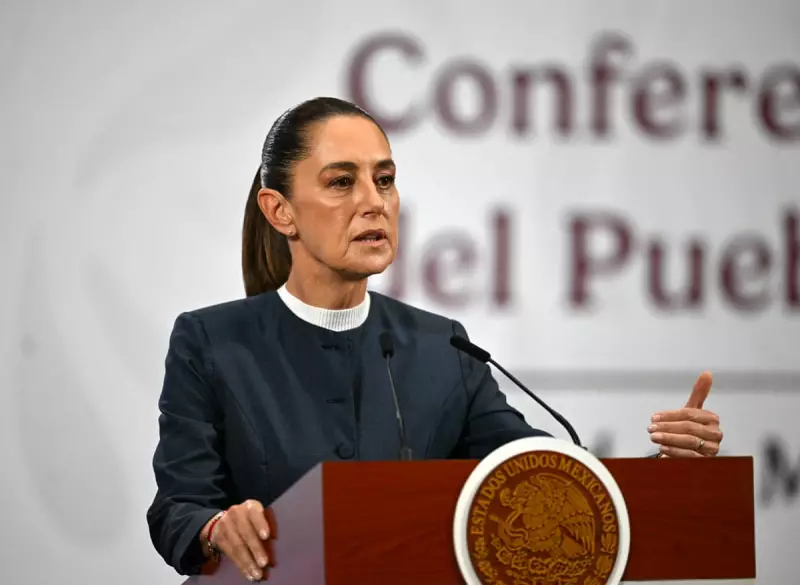
In a decisive stance that has captured international attention, Mexico's President-elect Claudia Sheinbaum has firmly rejected the possibility of allowing US military intervention to combat the country's powerful drug cartels.
The groundbreaking declaration comes as a direct response to growing discussions in American political circles about potential cross-border military operations targeting Mexican criminal organisations.
A Matter of National Sovereignty
Sheinbaum, who is set to become Mexico's first female president in October, emphasised that such foreign intervention would represent an unacceptable violation of Mexican sovereignty. "We will not permit any foreign military intervention in our territory," she stated unequivocally during a press conference.
Her position establishes a clear boundary in US-Mexico relations even before she assumes office, signalling continuity with current President Andrés Manuel López Obrador's policy of resisting external pressure on security matters.
Alternative Security Strategy
Rather than relying on foreign military support, Sheinbaum outlined her administration's planned approach to addressing cartel violence:
- Strengthening domestic institutions: Focusing on building more capable and trustworthy Mexican security forces
- Addressing root causes: Implementing social programs to combat the poverty and inequality that fuel cartel recruitment
- Regional cooperation: Enhancing intelligence sharing and coordinated operations with international partners
This comprehensive strategy aims to tackle both the symptoms and underlying drivers of organised crime while maintaining Mexico's autonomy in security decisions.
Regional Implications
The incoming president's firm position comes amid escalating violence in some Mexican regions and increasing fentanyl trafficking that has become a major concern for American officials. Sheinbaum acknowledged the shared nature of the security challenge but insisted solutions must respect Mexico's self-determination.
Her administration appears poised to continue the current government's policy of limited cooperation with US drug enforcement agencies while firmly rejecting any military presence on Mexican soil.
This stance sets the stage for potentially complex negotiations with the next US administration, regardless of November's election outcome, as both nations grapple with the persistent challenge of cross-border criminal organisations.





